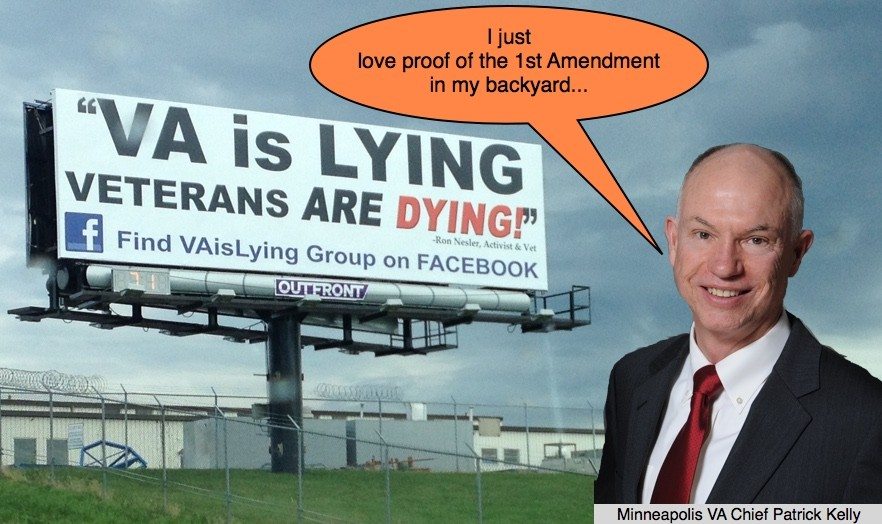Free Inpatient Mental Health Care Under COMPACT Act: A Closer Look
The COMPACT Act, enacted in January 2023, has brought significant changes to mental health care access for veterans. This federal benefit, designed to provide free emergency inpatient mental health care, is now under scrutiny as it reaches its one-year mark. With hundreds of veterans in Minnesota utilizing this benefit, questions arise about its effectiveness and implementation.
The COMPACT Act Overview
The COMPACT Act, or the Comprehensive Plan to Address and Treat Mental Health Conditions Act, aims to provide veterans with crucial mental health services. The benefit includes:
- 30 free inpatient days
- 90 free outpatient days Veterans availing this service are exempt from co-pays and other fees, making it a critical support mechanism for those in crisis.
Services Offered Under the COMPACT Act
The policy allows the Department of Veterans Affairs (VA) to:
- Provide, Pay for, or Reimburse Treatment: Cover emergency suicide care, transportation costs, and follow-up care at VA or non-VA facilities.
- Make Appropriate Referrals: Ensure veterans receive the necessary care following the emergency period.
- Determine Eligibility: Assess eligibility for other VA services and benefits.
- Refer to VA Programs: Connect eligible veterans with appropriate VA programs and benefits post-emergency care.
Utilization and Reach
Since its inception, approximately 400 veterans in Minnesota, including those in Rochester, the Twin Cities, and northern regions, have utilized this benefit. Minneapolis VA COMPACT Act Coordinator, Emma Podobinski, highlights the expanded reach of the VA through this program. “Some veterans who were previously not eligible for traditional VA healthcare have been incorporated as well,” Podobinski states. “We’ve connected veterans who were previously hesitant about VA services.”
Accessing the Benefit
Veterans in crisis need only to present themselves at a hospital and declare their situation. Hospital staff then initiate the process by calling the dedicated COMPACT Act phone number: 1-844-724-7842. Additionally, veterans can start the process by calling 911 or the 988 Crisis and Lifeline.
Critical Evaluation
While the COMPACT Act has undeniably expanded access to mental health care for veterans, it is essential to critically evaluate its long-term effectiveness and sustainability. Are the services adequately addressing the root causes of veteran mental health crises? Is the outreach sufficient to ensure all eligible veterans are aware of and can access these benefits?
FAQs About the COMPACT Act and Free Inpatient Mental Health Care
What is the COMPACT Act?
The COMPACT Act is a law enacted in January 2023 aimed at providing veterans with free emergency inpatient mental health care.
How many free inpatient and outpatient days are covered under the COMPACT Act?
The Act covers 30 days of inpatient care and 90 days of outpatient care without co-pays or fees.
How can a veteran access these benefits?
Veterans in crisis can go to any hospital and inform the staff of their situation. The hospital will call the COMPACT Act phone number to start the process. Veterans can also call 911 or the 988 Crisis and Lifeline.
Who is eligible for these benefits?
All veterans, including those previously not eligible for traditional VA healthcare, can utilize these benefits.
What services are included in the COMPACT Act?
The Act provides emergency suicide care, transportation costs, follow-up care, appropriate referrals, and connections to other VA services and benefits.





Those of us who have spent time in a VA psych ward – or any psych ward, for that matter – can tell you that inpatient mental health does nothing to address root causes like trauma, alienation, poverty, lack of support. Personally, my trauma has only been compounded by VA mental healthcare. Once you get “helped,” you are instantly stripped of autonomy, dignity, and all credibility. You no longer have rights or even basic humanity. And you can’t go back from that, it’s gone. When the VA says it offers “evidence based treatment,” they don’t tell you that it’s based on very low quality evidence. People are attracted to careers in mental health for power and control, even if they say they want to “help people.” You really have to dehumanize a person to believe that carceral mental healthcare is helping them.
Anyway, you are correct in that this is ineffective and wasteful – but the financial waste is petty in comparison to its devaluing and waste of human potential, relationships, and life. It is a socially acceptable violation of human rights (the UN even says so). But the VA gets to say they’re doing something.
What we need are material resources to fulfill our basic needs – housing, food, a sense of purpose, and we also need social connection. Veterans are often among the most severely alienated in society, and we need deep, genuine social connection as much as we need food, shelter, and air.
One of the first things they’re gonna do is ask if you got a history of pre-military trauma or “childhood trauma” or “mental health problems in the family.” That’s so they can potentially blame you for those problems and there goes any benefits you could qualify for. Second, if your behavior matches up to that “non-military trauma” according to some bogus and subjectively framed criteria…they aren’t gonna be responsible for anything that happens from that day forward. Under certain conditions..they can write you off completely and they’ll damn sure try every chance they get… and they’re gonna do that with your help if you aren’t smart enough to understand what they got going on there.
You don’t want to go there anyway. Care in the community is better and you might as well wig out on the couch and go see someone in the community rather than running the risk of your character assassinated on record, them lying about you in some way, or violating your rights in some way. Many go to work there just to be able to do those kinds of things and write policy on your ass. People of all political affiliations do that at VA.
This again has hidden agenda as do all government issues This statement: “Inpatient Mental Health Care ”
years ago the demoncrats added this clause to a bill, that came from Obama regime, this clause permits the government to be able to deny veterans their 2nd Amendment Rights under the law because they were in a hospital for three or more days as a inpatient, ergo they are mentally ill and should not possess firearms,
These HIDDEN clauses are a evil action that are buried within reasonably surfaced faced good intention-ed BILLS